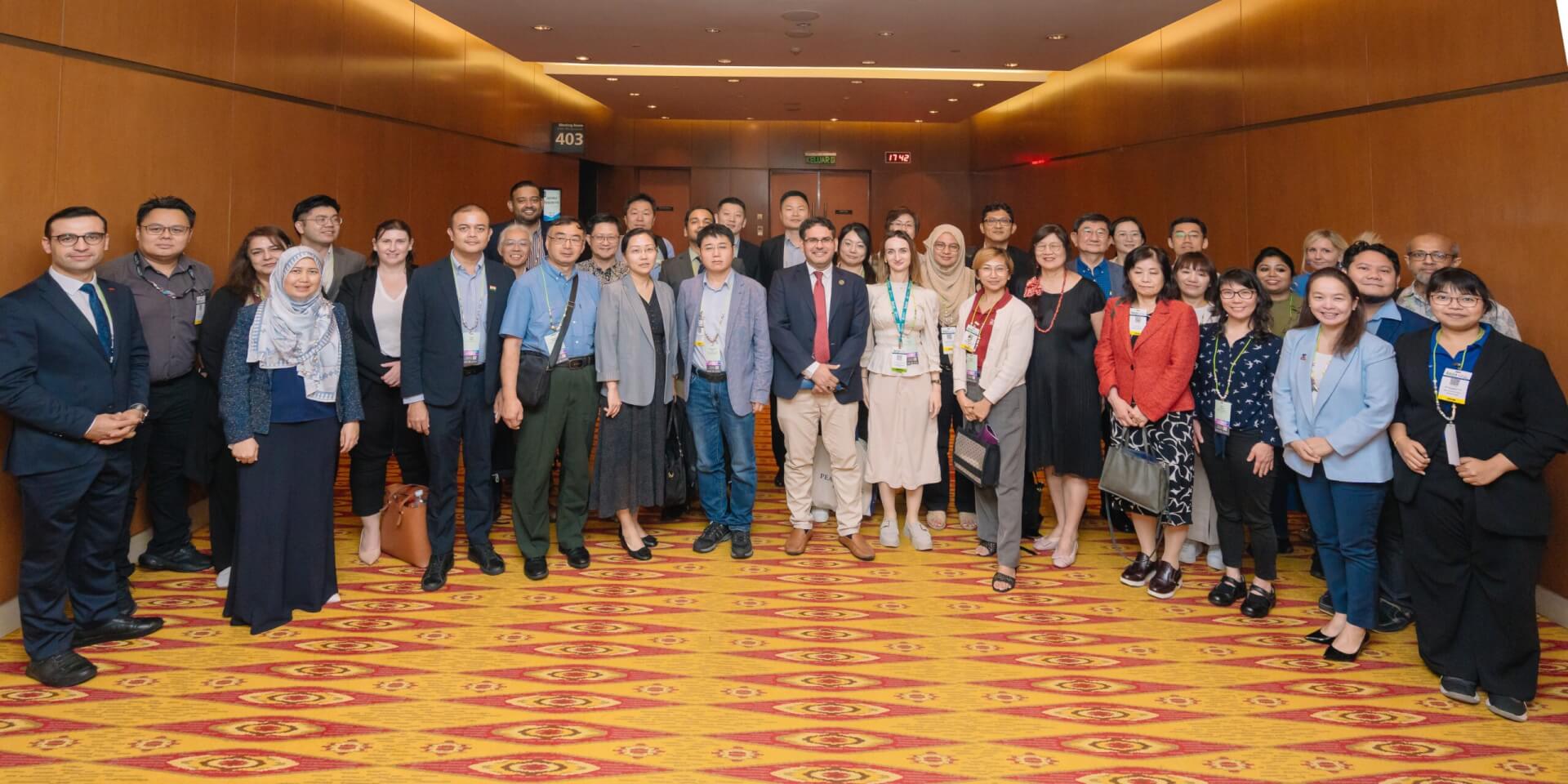
Publishing, getting recognized among senior peers, raising funds and maintaining work-life balance have been identified as some of the biggest challenges preventing young scientists from achieving success, according to Asia and the Pacific representatives of Young Academies and Associations.
Unlocking the potential of young scientific groups
A group of more than 50 scientists under 45 years old came together in the Young Academies and Associations Roundtable event organized by the ISC ahead of its Global Knowledge Dialogue in Kuala Lumpur, Malaysia. The group, representing 15 international Young Academies from Asia and the Pacific, gathered to discuss how to raise the voice of science in the region and respond to some of the challenges facing the planet.
🔄 A replay of the roundtable is available here.
ISC CEO, Salvator Aricò, said that since the ISC opened its doors to young scientific groups in 2022 the benefits have been significant.
“Clearly the impact of young scientific groups bringing fresh thinking, innovative and sometimes disruptive ideas is amazing. The ISC in itself is really a tool to make sure that the voice of science influences all those who have a role in science systems including the funders, the general public, science journalists and so on, and so for that we really need to organise ourselves to act and speak with a single voice.”
Dr Salvatore Aricò, ISC CEO
Elevating the voice of EMCR in international science
The roundtable discussion featured inspiring perspectives from fellow scientists on how to elevate the voice of Early-and-Mid Career Researchers (EMCR) in scientific research, scientific writing and international programs and prizes, and how to foster the engagement between Young Academies and Senior Science Academies.
There are 54 national young academies globally however, only five have been established among the ASEAN countries. They are in Thailand, Vietnam, Philippines, Indonesia and Malaysia.
Orakanoke Phanraksa, Senior Adviser for International Affairs, Thailand Science Research and Innovation and Co-Chair of the ASEAN Young Scientists Network (ASEAN YSN) said during the roundtable that some Young Academies worked better with Senior Academies than others.
“The Senior Academy of Sciences in Malaysia works well with its Young Academy for example. When it comes to other academies there is some disconnect, so instead we work with the policy-makers to try to create impact. Everyone can make an impact it just depends on how to do it.”
Dr Orakanoke Phanraksa, Senior Adviser for International Affairs, Thailand Science Research and Innovation
Professor Baojing Gu from Zhejiang University, the inaugural winner of the prestigious Frontiers Planet Prize for his breakthrough air pollution research, attended the event and shared his scientific journey milestones. Over his 20-year career, Baojing has moved from a biological sciences degree to a PhD in ecology, then took an interest in soil science at Alberta University in Canada, followed by work in the field of economics and more recently how that is applied to management and sustainability.
“I think the key message is when you are looking at the problem, when we are looking at the world, we need a multidisciplinary approach, to put these different disciplines together to see the problem and particularly to see the scientific problem. You then have to write a lot of papers in good publications and once you have good publications, you are invited to international talks and then you get to mix with other communities and researchers who have brilliant ideas.”
Professor Baojing Gu, Zhejiang University
The trend towards publishing in open access journals has given young scientists hope that their research would become more widely accessible, increase the profile of their work and open up greater opportunities for funding and collaboration.
Baojing is a highly cited scientist having published 43 papers in the last five years. Thirteen of his papers have been published in Nature – 149 of his submissions, however, were declined. His advice to early career scientists is you need to quickly move on from the rejections, keep working hard and never stop trying. “After submission of a paper, you need a strong heart. You will always get rejections. Rejection is the normal conclusion. It happens all the time, and that’s fine, we can start again,” he said.
ISC Regional Focal Point for Asia and the Pacific committed to supporting young researchers
The Director of the newly established ISC , Petra Lundgren, said the Australian government funded office was committed to shining a light on young researchers.
“The Australian government is very interested in Southeast Asia and the Pacific. We do want to make sure that the whole region is included and heard in this conversation. Having young people involved in the ISC plans for science missions outlined in the Mission Science for Sustainability and Flipping the Science Model reports is going to be critical. Young researchers are the future of science, they are the future of the scientific voice, and they have had to become better communicators. We really need to harness that energy, vitality, and savviness that we have in our young academies.”
Dr Petra Lundgren, Director of the ISC Regional Focal Point for Asia and the Pacific
The outcomes of the Young Academies and Associations Roundtable will feed into programmes of work being developed by the ISC and its Regional Focal Point for Asia and the Pacific.